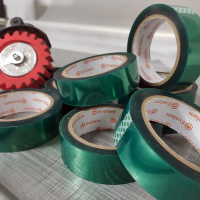Date: 28 June 2011
According to one of the UK’s leading glazing protection experts, Advanced Glass Technology (AGT), however, it’s not just humans that are at risk from peeling.
With security film thought to be fitted to flat glass on approximately 50% of all buildings within the City of London, with the other half completely unprotected, Hertfordshire based AGT is concerned that a culture of ‘fit and forget’ has the potential to put lives and property at risk in the event of a major terrorist attack or instance of civil unrest.
Additionally, during a heightened period of potential threats to urban areas, it is claimed that the absence of ‘peel test’ records could invalidate any insurance claim, if the film was found to be unfit for purpose.
The specialist security glazing business, which advises a number of embassies and non-governmental organisations, is calling on facilities personnel and estates managers to check maintenance records to ensure that installations remain up to the job. Security film is an effective and proven means of protecting occupants and property but just like skin, it has a limited lifespan and loses its protective capabilities over time.
Guidance from the Home Office’s Centre for Applied Science and Technology (CAST), requires security film to achieve a specified adhesion to the glass at regular intervals after installation. This is essential to hold the shattered glass fragments after the shock of a ballistic or blast attack. To do this, a good adhesive also needs tackiness to dissipate energy away from the cracks. Brittle or over stiff adhesive will propagate the concentration of stress at the cracks into the film, which may cause it to tear prematurely, rendering it useless in the event of a major incident.
AGT suggests that film requires replacement after failing a ‘peel test’ or after a maximum of ten years as Martin Westney, Managing Director, Advanced Glass Technology, explains:
“Security film acts as a protective skin on vulnerable flat glass but unlike our skin, the film is constantly exposed to sunlight, so the effects of temperature and UV rays on the adhesive are accelerated. This is more acute in particularly hot climates such as the Middle East but even in the UK, film should be replaced within ten years and tested regularly from installation.”
“In our experience, record keeping is not applied consistently across the industry and there are certainly many installations that require immediate checks. Our advice to property owners is simply this, ‘if the answer’s unknown then pick up the phone’.”
Notes to Editors:
Established in 2009, AGT is a leading supplier and installer of security and solar control film. Consultants to a number of embassies, Non-Governmental Organisations and private landlords in the UK, Middle East and India, AGT also offers installation with a range of specialist anchoring and edge retention systems for enhanced levels of protection, according to the client’s requirements.
With security films starting at a thickness of 50 microns up to 450 microns, the multi-laminate polyester membrane can be applied to any glass surface. It is bonded with an aggressive pressure sensitive adhesive system resulting in any broken glass adhering to the film.
Peel tests should be carried out between 28-90 days after installation. As a guide, tests should be carried out at the following intervals after installation:
28 days for Category B1 films (100 μm)
42 days for Category A1 films (175μm)
90 days for Category A2 films (300μm)
Home Office CAST guidelines for ordinary 'Security Grade' Anti Shatter Film require a peeled back, 25mm wide strip to:
a) Hold a weight of 800 gms without stripping.
b) Carrying a weight of 1500 gms stripping no faster than 300mm per minute (5mm per second).
c) Move under a weight of 4000 gms.
For more information, visit the AGT website www.agt-int.com


















Add new comment